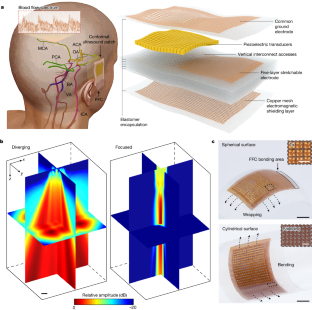2024-05-22 ペンシルベニア州立大学(PennState)
<関連情報>
- https://www.psu.edu/news/health-and-human-development/story/dehydration-middle-aged-and-older-adults-may-lead-attention/
- https://onlinelibrary.wiley.com/doi/10.1002/ajhb.24051
- https://journals.lww.com/acsm-msse/fulltext/2001/09000/influence_of_age_on_thirst_and_fluid_intake.16.aspx
中高年の地域居住者において、自由行動下での脱水は、持続的注意課題の成績低下と関連するが、認知能力の他の指標は関連しない: 短期縦断研究 Ad libitum dehydration is associated with poorer performance on a sustained attention task but not other measures of cognitive performance among middle-to-older aged community-dwelling adults: A short-term longitudinal study
Asher Y. Rosinger, Jason D. John, Kyle W. Murdock
American Journal of Human Biology Published: 14 February 2024
DOI:https://doi.org/10.1002/ajhb.24051

Abstract
Objective
Hydration status and water intake are critical to physiological health. Despite a popular narrative that dehydration impairs cognitive performance, results are mixed in the literature. Therefore, we tested how hydration status was associated with cognitive performance in an ad libitum state over the course of 3 months.
Methods
Data come from a short-term longitudinal study among middle-to-older aged US adults (n = 78) measured three times (207 observations). All participants were scheduled for 8:00 a.m. visits for the baseline, two-week, and 3-month examinations where they completed surveys, neuropsychological tests to measure cognitive performance, anthropometrics, and a blood draw for biomarker analysis. Serum osmolality (Sosm) was measured as a biomarker of hydration status using osmometry. Four cognitive performance tasks were assessed, including inhibition, working memory, cognitive flexibility, and sustained attention.
Results
Panel random effects linear regressions demonstrate that there was an inverse association between dehydration and sustained attention, whereas there were no significant relationships between dehydration and inhibition, working memory, and cognitive flexibility. Adults who were dehydrated (defined as Sosm >300 mOsm/kg) performed substantially worse (B = 0.65 z-score; SE = 0.28; p = .020) on the sustained attention task than those who were not dehydrated adjusting for time fixed effects, age, body mass index, sex, and educational attainment.
Conclusion
This short-term longitudinal study found that dehydration was only associated with poorer performance on a cognitive performance task that required sustained attention. Maintaining adequate hydration may be increasingly important for middle-to-older aged adults to ensure proper cognitive function, particularly as water needs increase in future climatic scenarios.
口渇と水分摂取に及ぼす年齢の影響 Influence of age on thirst and fluid intake
KENNEY, W. LARRY; CHIU, PERCY
Medicine & Science in Sports & Exercise Published:September 2001
Abstract
KENNEY, W. L., and P. CHIU. Influence of age on thirst and fluid intake. Med. Sci. Sports Exerc., Vol. 33, No. 9, 2001, pp. 1524–1532. Independently living older adults (over the age of 65 yr) consume adequate volumes of fluids on a daily basis. However, when challenged by fluid deprivation, a hyperosmotic stimulus, or exercise in a warm environment (all of which combine hypovolemia and hyperosmolality), older adults exhibit decreased thirst sensation and reduced fluid intake. Full fluid restoration eventually occurs, but full restoration of fluid balance is slowed. The aging process alters important physiological control systems associated with thirst and satiety. Recent evidence suggests that older men and women (i) have a higher baseline osmolality and thus a higher osmotic operating point for thirst sensation (with little or no change in sensitivity), and (ii) exhibit diminished thirst and satiety in response to the unloading (hypovolemia) and loading (hypervolemia) of baroreceptors. A diminished sensation of thirst in the elderly relative to young adults is generally absent when a volume stimulus is absent, despite higher baseline plasma osmolalities. Compared with the elderly, there are scant data associated with homeostatic control of thirst in children. Nonhomeostatic control of thirst and drinking behavior may likewise be different for children (as it is for the elderly), as compared with young adults; however, little empirical data exist on this topic. Children rarely exhibit voluntary dehydration for activities lasting 45 min or less; however, drink flavoring and sodium chloride are important promoters of drinking in active children.
